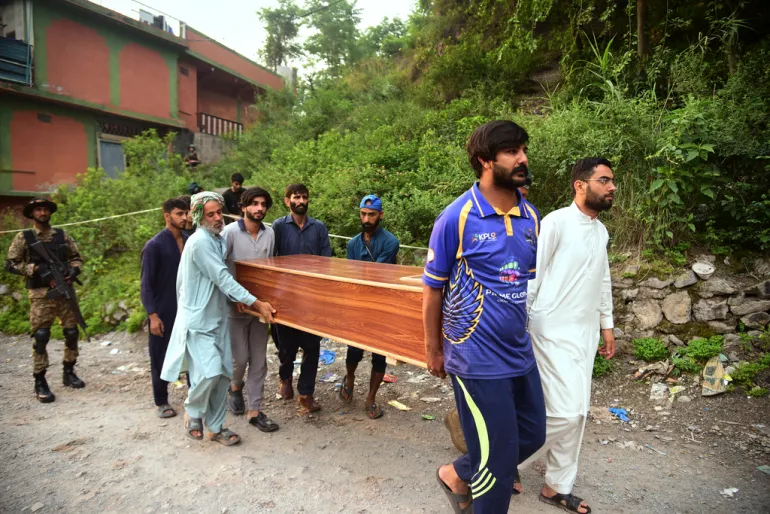NEW DELHI/ISLAMABAD — India’s bold military offensive, codenamed Operation Sindoor, left at least 31 people dead and 57 others injured in Pakistan and Pakistan-controlled Kashmir early Wednesday, intensifying already volatile relations between the two nuclear-armed nations. Pakistan has vowed to retaliate, calling the strikes an “unprovoked and blatant act of war.”

According to India’s Ministry of Defense, the missile strikes were aimed at nine terrorist infrastructure sites in both Pakistan and Pakistan-occupied Jammu and Kashmir. Officials described the operation as “focused, measured, and non-escalatory,” stressing that no Pakistani military facilities were targeted. The strikes came two weeks after a terror attack in Pahalgam, Indian-administered Kashmir, left 26 dead, prompting New Delhi to accuse Islamabad of complicity.
In a statement following the strikes, Indian Foreign Secretary Vikram Misri said intelligence assessments showed further cross-border attacks were imminent. “India exercised its right to respond, pre-empt, and deter,” Misri said, defending the operation as a necessary countermeasure.
Pakistan’s government, however, condemned the strikes as a direct violation of its sovereignty and claimed without providing evidence that it had shot down five Indian fighter jets. India has not publicly responded to the claim, though Associated Press reported that two Indian aircraft crashed in Indian-administered Kashmir.
Speaking from the Oval Office, President Donald Trump reacted cautiously to the situation, saying, “It’s a shame…they’ve been fighting for a long time…I hope it ends very quickly.” Secretary of State Marco Rubio echoed Trump’s sentiments via social media, adding that the U.S. is monitoring the conflict closely and will engage both sides toward a peaceful resolution.
Other international responses were mixed. China’s Foreign Ministry described the Indian operation as “regrettable,” urging calm and restraint from both sides. Israel, meanwhile, offered full backing to India, with Ambassador Reuven Azar tweeting support for India’s “right to self-defense.” The United Nations expressed deep concern, with a spokesperson for Secretary-General António Guterres calling for “maximum military restraint” and warning that “the world cannot afford a military confrontation between India and Pakistan.”
Just hours after the missile barrage, shelling resumed across the Line of Control — the de facto border in Kashmir. Indian officials reported that Pakistani shelling killed 10 civilians and injured 32 others in Indian-administered Kashmir. Pakistan claimed five deaths on its side due to Indian shelling, as both sides traded blame for ceasefire violations.
Tensions have soared since the April attack in Pahalgam, where 26 people, mostly Indian nationals, were killed in a suspected terror strike. India immediately blamed Pakistan, accusing it of backing militant groups operating in Kashmir. Pakistan denied the charges as “baseless and concocted.”
India’s leadership vowed a firm response, setting the stage for Operation Sindoor. In the lead-up to the strikes, Pakistan’s Defense Minister Khawaja Asif stated in an interview with Bloomberg TV that while Pakistan would not initiate hostilities, it was prepared to respond decisively if attacked. “If India attacks, we’ll respond. If India backs down, we’ll definitely wrap up,” he said.
India’s Air Force Wing Commander Vyomika Singh, speaking after the mission, reiterated that India had shown considerable restraint, but warned the armed forces were “fully prepared” for any further provocations from Pakistan.
The India-Pakistan rivalry has been one of the world’s most dangerous geopolitical flashpoints for over seven decades, centered on the disputed region of Kashmir. The countries have fought three wars — including the most recent major clash in 2019, when India carried out airstrikes in Balakot following a deadly suicide bombing that killed 40 Indian paramilitary personnel.
Now, with Operation Sindoor, the conflict risks entering a new and more volatile phase, drawing in global powers and stoking fears of another full-scale confrontation.


